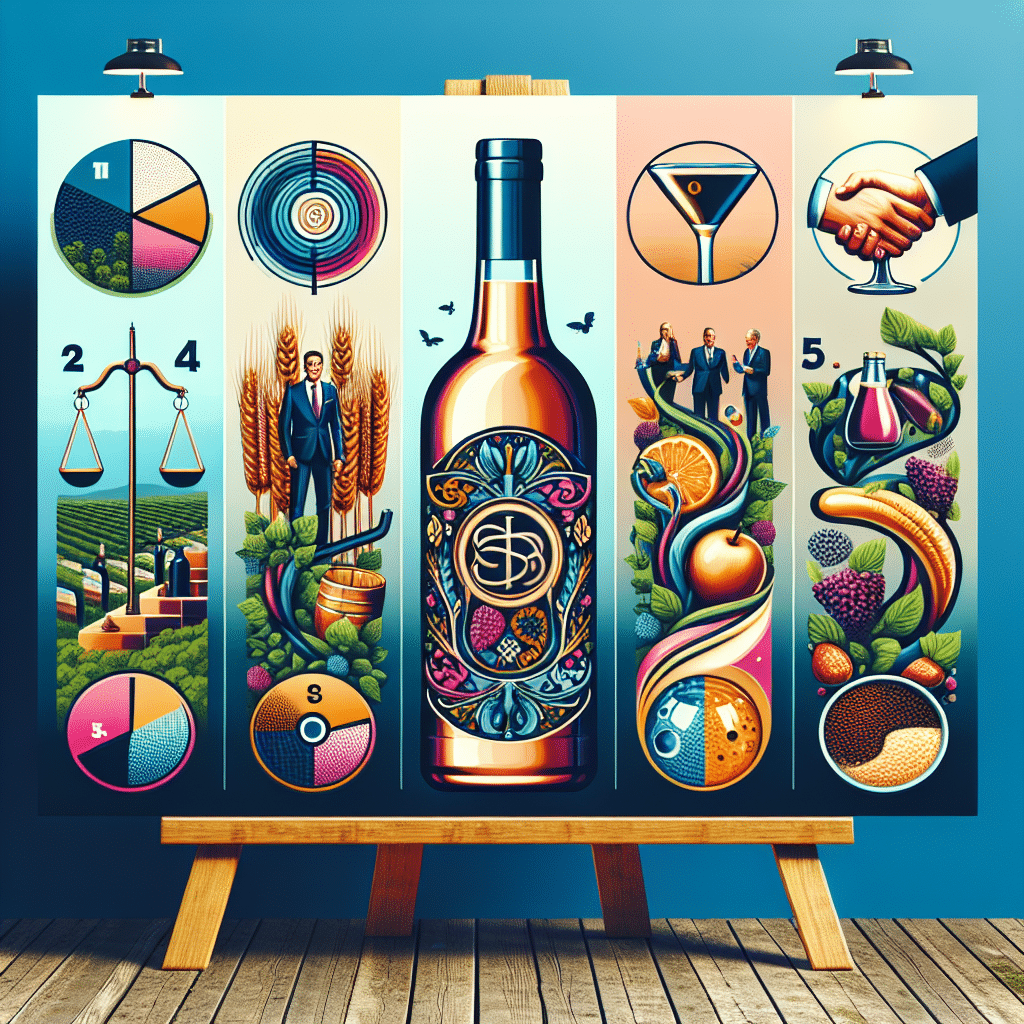Launching Alcoholic Beverages: 5 Key Success Tips
-
Table of Contents
Launching Alcoholic Beverages: 5 Key Success Tips for Market Triumph

The alcoholic beverage industry is a dynamic and competitive market where new products are launched regularly. Success in this industry requires more than just a great-tasting drink; it involves strategic planning, understanding consumer behavior, and executing a well-thought-out launch plan. In this article, we will explore five key tips that can help ensure the successful launch of an alcoholic beverage.
1. Understand Your Target Market
Before launching an alcoholic beverage, it is crucial to have a deep understanding of your target market. This includes knowing their preferences, purchasing habits, and the trends influencing their choices. Conducting market research can provide valuable insights into what your potential customers are looking for in an alcoholic drink.
- Demographics: Age, gender, income level, and lifestyle can all influence beverage preferences.
- Consumer Trends: Keep an eye on emerging trends, such as the growing demand for craft beers or low-calorie cocktails.
- Competitor Analysis: Study what your competitors are doing right and where there might be gaps in the market.
For example, the rise of hard seltzers like White Claw and Truly came from understanding the market’s shift towards healthier, low-calorie options that still provide the social experience of drinking alcohol.
2. Develop a Unique Selling Proposition (USP)
Your alcoholic beverage must stand out in a crowded market. A unique selling proposition (USP) is what makes your product different and more appealing than the competition. This could be a unique flavor, an innovative brewing process, or an environmentally friendly packaging approach.
- Quality Ingredients: Source high-quality or unique ingredients that can set your beverage apart.
- Branding: Create a strong brand identity that resonates with your target audience.
- Storytelling: Share the story behind your beverage, whether it’s the history, the makers, or the inspiration.
Take, for instance, the success of craft beer brand BrewDog, which positioned itself with a rebellious image and a commitment to sustainability, capturing the attention of a specific consumer segment.
3. Regulatory Compliance and Safety
Navigating the legal landscape is a critical step in launching an alcoholic beverage. Ensuring compliance with local, state, and federal regulations will protect your business and build trust with consumers.
- Licensing: Obtain all necessary permits and licenses to produce and sell alcoholic beverages.
- Labeling: Ensure your labels meet legal requirements and provide clear information about alcohol content and ingredients.
- Food Safety: Implement strict quality control measures to ensure the safety and consistency of your product.
For example, the craft distillery Tito’s Handmade Vodka emphasizes its compliance with regulations and its commitment to producing a consistently safe and high-quality product.
4. Strategic Marketing and Distribution
A well-planned marketing and distribution strategy is essential for getting your alcoholic beverage into the hands of consumers. This includes choosing the right channels for sales and creating marketing campaigns that effectively communicate your USP.
- Channel Selection: Decide whether to focus on on-premise (bars, restaurants) or off-premise (retail stores) sales, or a combination of both.
- Marketing Campaigns: Use a mix of traditional and digital marketing to reach your audience where they are most active.
- Partnerships: Collaborate with influencers, event organizers, or other brands to expand your reach.
An example of effective marketing is the collaboration between Casamigos Tequila and celebrities, which helped the brand gain significant visibility and credibility quickly.
5. Continuous Innovation and Feedback
The beverage industry is constantly evolving, and successful brands are those that continue to innovate and adapt based on consumer feedback. Regularly introducing new flavors, limited editions, or line extensions can keep your brand relevant and exciting.
- Product Development: Stay ahead of the curve by experimenting with new flavors and formulations.
- Customer Feedback: Engage with your customers and listen to their feedback to make improvements or create new products.
- Market Adaptation: Be prepared to pivot your strategy in response to changing market conditions or consumer preferences.
A case in point is the craft beer industry, where breweries often release seasonal brews or special editions to maintain consumer interest and stay competitive.
Conclusion
Launching an alcoholic beverage successfully requires a deep understanding of your target market, a compelling USP, adherence to regulatory standards, strategic marketing, and a commitment to innovation and customer feedback. By following these five key tips, you can increase your chances of success in the competitive world of alcoholic beverages.
For those in the food and beverage industry looking to enhance their products with high-quality protein, ETprotein offers a range of organic bulk vegan proteins and L-(+)-Ergothioneine (EGT) that can be incorporated into alcoholic beverages or other products. Their non-GMO, allergen-free proteins are perfect for creating innovative and health-conscious drinks that cater to the evolving demands of consumers.
About ETprotein
ETprotein, a reputable protein and L-(+)-Ergothioneine (EGT) Chinese factory manufacturer and supplier, is renowned for producing, stocking, exporting, and delivering the highest quality organic bulk vegan proteins and L-(+)-Ergothioneine. They include Organic rice protein, clear rice protein, pea protein, clear pea protein, watermelon seed protein, pumpkin seed protein, sunflower seed protein, mung bean protein, peanut protein, and L-(+)-Ergothioneine EGT Pharmaceutical grade, L-(+)-Ergothioneine EGT food grade, L-(+)-Ergothioneine EGT cosmetic grade, L-(+)-Ergothioneine EGT reference grade and L-(+)-Ergothioneine EGT standard. Their offerings, characterized by a neutral taste, non-GMO, allergen-free attributes, with L-(+)-Ergothioneine purity over 98%, 99%, cater to a diverse range of industries. They serve nutraceutical, pharmaceutical, cosmeceutical, veterinary, as well as food and beverage finished product distributors, traders, and manufacturers across Europe, USA, Canada, Australia, Thailand, Japan, Korea, Brazil, and Chile, among others.
ETprotein specialization includes exporting and delivering tailor-made protein powder and finished nutritional supplements. Their extensive product range covers sectors like Food and Beverage, Sports Nutrition, Weight Management, Dietary Supplements, Health and Wellness Products, and Infant Formula, ensuring comprehensive solutions to meet all your protein needs.
As a trusted company by leading global food and beverage brands and Fortune 500 companies, ETprotein reinforces China’s reputation in the global arena. For more information or to sample their products, please contact them and email sales(at)ETprotein.com today.












